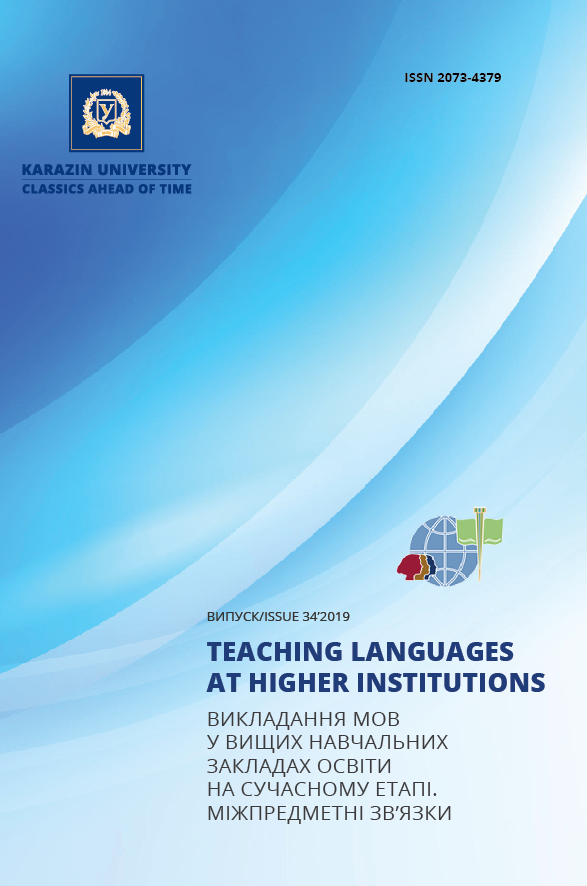Group work as the way of organising and motivating students
Abstract
The article is devoted to the analysis of group work as specific way of organizing students at all the stages of an English lesson. Various kinds of group work are taken into consideration as alternative to the traditional teaching format. They are described as the form of work designed for motivating students, encouraging their active participation, use of imagination, creativity and cooperation between a teacher and learners. It is shown that well-organised group work is the essential component of role playing activities. The types of group format, introduced by N. Mcclver, are taken into consideration. The peculiarities of pair work are revealed. Such group format may be used in groups where there are discipline problems.
Triad group format is analyzed as the alternative to pair work. The role play activities designed for pairs and triads are introduced. It is proved that short role playing exercises can be especially helpful.
Group format Pyramid can be an excellent way of practicing the language of persuasion and having discussion. It is shown that activities of interview type can be successfully organized by means of a pyramid group format. It is proved that in the foreign language classroom interviews are useful because they force students to listen carefully, to practice new grammar structures as well as recycle vocabulary. Interviews give students the opportunity to improve their general knowledge and to be able to communicate on various subjects. Pairs and triads can be easily transformed into group format Pyramid, which requires participation of at least eight students.
It is shown that group format Mingles is considered to be the most challenging and the most effective type of group work. It requires much preparation and greater workload from the teacher. It is proved that Mingles group format is fruitful for advanced learners as activities, organized by means of this format can occupy a lot of time and require acting skills.
The use of all types of group format is aimed at creating relaxed and friendly atmosphere in a foreign language class. It is pointed out that Pyramid and Mingles group formats usually require more preparation than work in pairs and Triads format. Pyramids and Mingles group formats make use of variety of techniques and contribute to the development of group feeling that helps the teacher to motivate students and to create happy learning environment.
The interactive exercises offered in the article are easily adaptable to different group format and different learners` needs.
Downloads
References
REFERENCES
Hicks, D. (2001). Mixed Ability classrooms. Turning weakness into strength. Inozemni movy [Foreign languages]. Kyiv: Inozemni Movy, 2, pp. 28–29 [in English].
Hadfield, J. (2006). Classroom Dynamics. Cambridge: Cambridge University Press [in English].
Johnson, S. (2016). Where Good Ideas Come From. Cambridge: Cambridge University Press [in English].
Klippel, F. (1984). Keep Talking. Cambridge: Cambridge University Press [in English].
Lee, W. (1980). Language Teaching Games and Contests. Oxford: Oxford University Press [in English].
Maley, A. (2015). Creativity in the English Language Classroom. Peachy, N. (Ed.). London: British Council [in English].
Mclver, N. (2001). How do I organize my students into groups. Kyiv: Inozemni movy [Foreign languages], 4, pp. 22–23 [in English].
Umstatter, J. (2002). English Brainstormers. San Francisco: A Wiley Imprint [in English].
Watcyn-Jones, P. (2000). Fun Class Activities. London: Penguin Book [in English].

